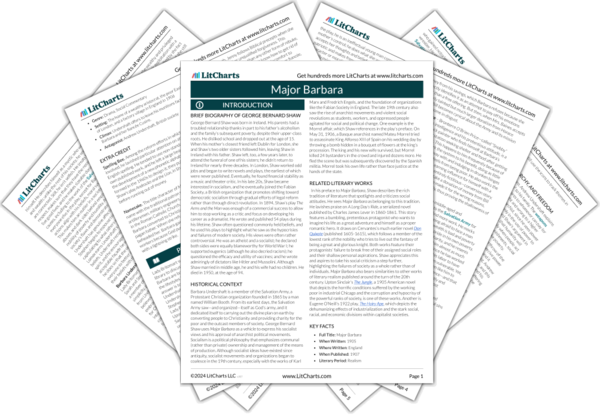Despite Lady Britomart and her children discussing Andrew Undershaft in terms that suggest he is scarcely better than a devil, the man himself seems mostly harmless, even shy. The immediate connection he feels with Barbara and Cusins foreshadows the similarities between the three the play will eventually expose, even though—on the surface—the zealous missionary, the self-effacing teacher, and the architect of death and destruction seem to have little common ground. He does live up to Lady Britomart’s portrait in one key way, however: in his unapologetic love for his business and his lack of concern for performing the same pious beliefs as the rest of his society. This suggests that he—and the play—have a different view on the true nature of good and evil, although he hasn’t yet explained it.
